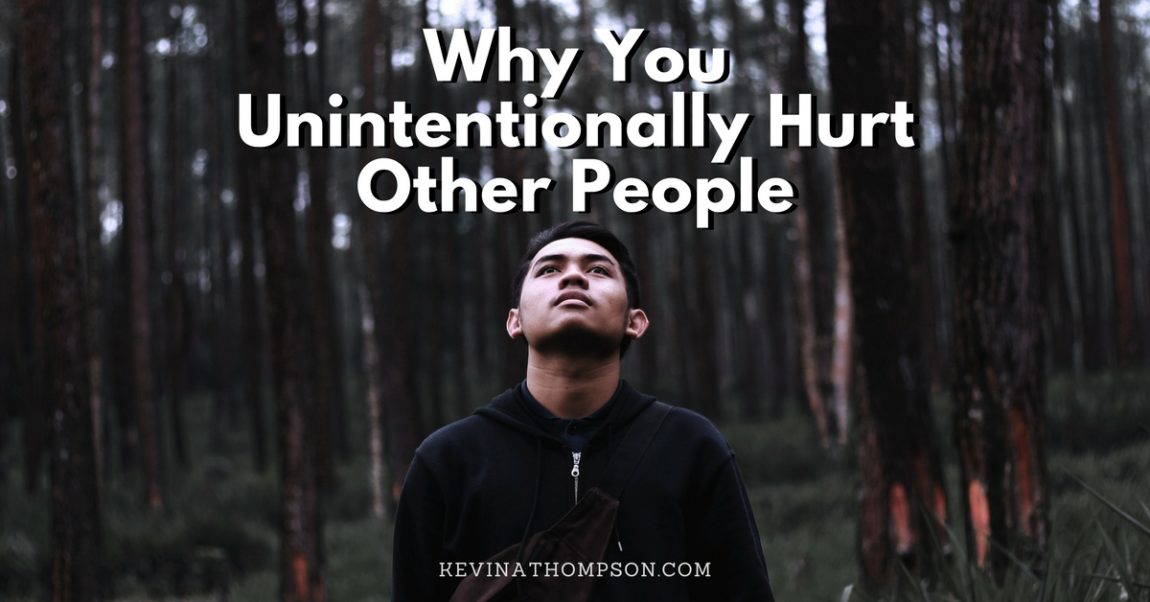Connection breeds compassion. Without a healthy community, we will never know the far-reaching negative ramifications of our actions. Only when we are well-connected with others will we be able to understand how our choices influence them.
A hurricane is bearing down on a poverty-ridden island in the Caribbean. Most aren’t paying attention, but a few people are deeply concerned for the island. What’s the difference between the two groups? The latter have been on mission trips to the area. They know the people who are in danger. Being connected to the people breeds compassion.
A law is being debated in Washington. To some, it seems like an obvious decision…the rule of law must be followed. To others, the decision seems equally obvious…we must show compassion to others. What’s unique about this circumstance is that it doesn’t follow the normal political divides of right or left, conservative or liberal. Instead, this issue turns on one question–do you personally know someone affected by the law. If someone does, they desire one outcome. If someone doesn’t, they desire another outcome. Connection with the people greatly influences concern for the law.
A joke circulates on social media. Some laugh hysterically and share quickly. Others delete the joke before reading half a paragraph. The difference? The topic of the humor compares a politician to those suffering from a genetic condition and does so using the R-word. For those who aren’t in a relationship with a family of someone with a mental disability, the joke is funny. For those who know someone personally affected by a mental condition, the joke is crude. Humor is dictated by the type of community a person experiences.
Connection is a prerequisite to compassion. Until we are connected with others, we can not understand their experiences, perspectives, or perceptions. A healthy community does more than simply lend us support. It widens our understanding, expands our experiences, and influences our thinking. The more diverse and interconnected our communities are, the better opportunity we have to make wise and effective decisions. The more uniform the voices that influence us, the more likely we are to act in hurtful and damaging ways. Sadly, not only will we hurt others, we likely won’t even realize it. (See: I’m Tired of Being Nice)
Understanding results from a community. This reality can be used to reveal what relationships we need. If something about another group of people seems obvious to us, but not to them, it might be a sign we don’t fully understand their story. Rather than just assuming we are right and they are wrong, we should use our confidence as a warning that we have failed to create a meaningful connection with others.
Can’t understand why anyone would ever vote for your political opponent? Build a relationship with someone who shares similar beliefs to you but voted differently.
Can’t figure out why a whole group of people believes the way they do? Humbly build a connection with someone from that group and slowly build enough trust so you can share your heart and they theirs.
Can’t fathom how someone can be so delusional regarding an issue? Rather than mocking them or dehumanizing them, take them to lunch and simply ask questions.
Without others, we will not think clearly. Poor thinking is bad enough, but added to our plight will be an arrogance which believes the problem is not with us but with others. We won’t recognize our own deficiencies.
We must connect with others in order to deepen our compassion for others. To the extent that we are connected with others, we will have the opportunity to love them well. Those we don’t know, we won’t love.
This principle is true for every person, but it grows in importance as one’s leadership and influence increases. The more power we have to influence negatively or positively the lives of others, the more diverse our connections must be. A principal has to have relationships in order to understand how a new school policy could impact teachers, parents, staff, and students. They can’t just assume they will know. A politician must greatly diversify their circle of influencers beyond just their base supporters in order to effectively implement laws. A leader must intentionally develop relationships in order to protect themselves from themselves.
When we fail to create healthy connections with a diverse group of people, we will unintentionally harm others even in the moments in which we have our best intentions. If we desire to love others well, part of loving them is understanding them. Knowing doesn’t guarantee loving, but failing to know others does ensure we won’t be able to love them well. (See: How to Better Control Yourself)
Consider your community. Who would you call if:
Someone posted a political comment on social media and instead of assuming they are wrong, you wanted to understand why someone might come to that conclusion?
A national story broke about the oppression of another people and instead of just forming your opinion from your experience, you wanted to gain insight into that people’s experience?
A person with a different background communicates hurt over a social issue and instead of thinking people are too soft today, you actually wanted to understand their hurt?
Who do you call from another:
- race
- religion
- political persuasion
- socio-economic background
- gender
- martial status
- age
- country of origin
The more monolithic our communities, the more likely our thinking is self-centered and self-serving. While diverse community doesn’t ensure wise conclusions or choices, it does create the climate in which those things can happen. Without it, we can nearly gurantee our words, decisions, and actions will be hurtful to others.
Want compassion? Create connection.
Cover photo courtesy Eris Setiawan on Unsplash




2 Responses to Why You Unintentionally Hurt Other People